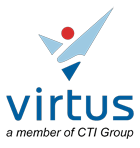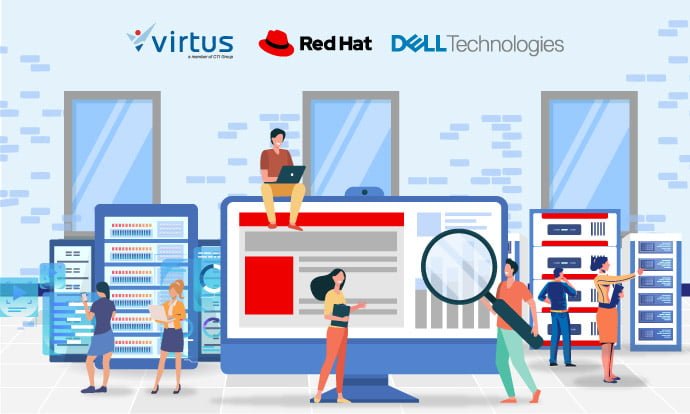
Companies sometimes face issues in the growing large digital era since the infrastructure employed is still traditional. According to a Dell Technologies survey, 71 percent of businesses believe legacy infrastructure to be the most significant barrier to business transformation. To overcome this issue, RedHat OpenShift and Dell HCI provide organizations with the comfort of faster IT infrastructure automation and modernization.
Of course, the combination of RedHat OpenShift and Dell HCI may help organizations execute workloads in hybrid and multi-cloud settings while also accelerating IT infrastructure scalability. Let's take a closer look at RedHat OpenShift and Dell HCI solutions and how they may assist businesses accomplish their digital transformation goals.
What is RedHat OpenShift?
RedHat OpenShift is a cloud-based Kubernetes platform created and developed by RedHat. This platform enables developers to easily create, manage, and release applications across multiple environments such as public cloud, private cloud, and on-premises.
Because OpenShift is built on Kubernetes technology, developers may take advantage of microservices and container designs, as well as the automation and scalability management that Kubernetes provides.
The Operator Framework is a key element of OpenShift, allowing developers to automate operational operations and save time to market. OpenShift also provides an integrated development environment, which facilitates development team collaboration and speeds up application development.
OpenShift is also available in several editions, including OpenShift Container Platform (on-premises version), OpenShift Dedicated (exclusively hosted Kubernetes service), and OpenShift Online (public cloud service).
What is Dell HCI?
Dell HCI (Hyper-Converged Infrastructure) is an integrated and centralized IT infrastructure solution designed to improve data center efficiency and scalability. All parts of an HCI infrastructure, including computation, storage, and networking, are integrated into a single system, making the infrastructure more controllable and scalable as needed.
Dell HCI has various advantages, including increased flexibility and scalability, the potential to save space and money, and simplified infrastructure administration and maintenance. Furthermore, Dell HCI offers improved security and can assist in speeding up system uptime and deployment.
Dell HCI solutions often integrate Dell EMC hardware with VMware or Nutanix software, as well as Dell Technologies support and consulting services. With this combination, Dell HCI can deliver integrated, easy-to-configure infrastructure that is suited for certain workloads.
Why is Combining RedHat OpenShift with Dell HCI the Best Option for Your Business?

When modernizing their IT infrastructure, firms can consider combining RedHat OpenShift with Dell HCI. For businesses wishing to take advantage of container technology's advantages and satisfy the rising application demand, both provide important advantages.
RedHat OpenShift and Dell HCI work together to create a flexible and scalable infrastructure solution that makes it simple for businesses to manage their infrastructure resources in accordance with their demands.
Enterprises can rapidly and inexpensively add computing, storage, or networking resources with Dell HCI, and OpenShift offers a standardized framework for managing containers wherever they are.
These two systems also offer a very stable and secure framework for executing applications in containers. Role-based access control, network rules, and container image scanning are just a few of the enterprise-grade security features that RedHat OpenShift offers. Meanwhile, Dell HCI offers data protection and disaster recovery features that guarantee data is always accessible and recoverable in the case of a failure.
All of this may assist businesses in achieving their digital transformation objectives and bolstering their position in a market that is becoming more and more competitive.
Read More: Why Can Hybrid Cloud Help You Getting into the Market Rapidly and Scalable?
RedHat Openshift and Dell HCI Solutions are Available from Virtus
Companies may create and update apps on the hybrid cloud platform with the aid of Virtus Technology Indonesia (VTI), a RedHat and Dell Technologies certified partner. VTI will assist your business in quickly and agilely developing apps on any cloud service with the support of a knowledgeable and qualified IT staff.
Contact Virtus right away to discuss the IT modernization needs of your business. Click here to get in contact with our team for more information.
Author: Ary Adianto
CTI Group Content Writers



























